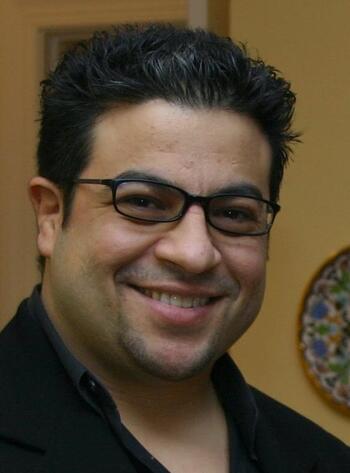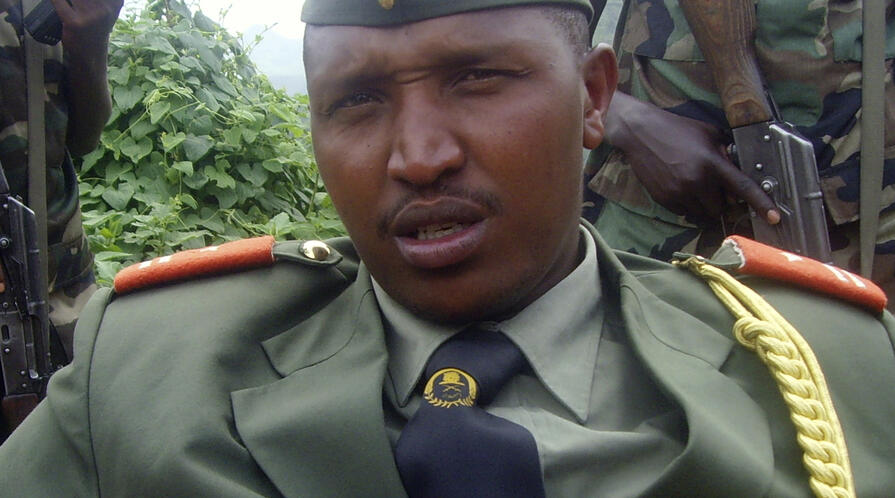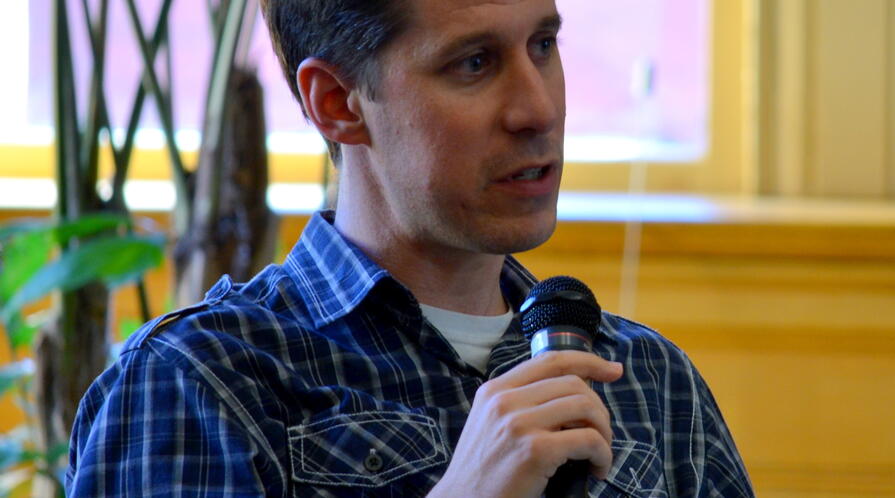On March 18, Congolese militia leader Bosco Ntaganda surrendered himself unexpectedly to the U.S. Embassy in Kigali, Rwanda asking for transfer to the International Criminal Court (ICC) at The Hague, where he was wanted for allegedly committing crimes against humanity. The apprehension of ICC indictees was one of the main challenges raised during the Program on Human Right's (PHR) Sanela Diana Jenkins Human Rights Speaker Series last quarter. Ntaganda’s voluntary surrender provoked reflection on the lessons learned from the seminar’s evaluation of the ICC’s impact on international justice as it marked its first decade and exploration of its mandate moving forward.
Featuring lectures from international experts, academics, and activists, the seminar addressed many of the current challenges and future hopes of the ICC, including competing notions of justice and peace, budgetary constraints, and victims’ rights.
The series was led by PHR Director Helen Stacy and UCLA Law Professor Richard Steinberg, also a visiting scholar at Stanford's department of political science. They both kicked off the series by presenting the history and structure of the ICC and concluded with a discussion on its impact, commenting on how the ICC has helped shape the narrative on mass atrocities.
“Reflecting Diana Jenkins' personal commitment to restoring dignity, prosperity, justice and hope to those who most need it, the human rights speaker series aims to engage students on the most pressing human rights issues of our time,” said Stacy. “The International Criminal Court's 10th anniversary invites careful thought about its role so far, and its future. Our speakers brought an extensive range of opinions on the Court, but everyone agreed that the very existence of the Court has advanced the dialogue on international justice.”
A wide array of positions were offered by the speakers, representing the nonprofit, academic and policymaking arenas. Citing some of the limitations facing the ICC, Human Rights Watch’s Director of International Justice Program Richard Dicker made a compelling case for the Court, highlighting the role of civil society in promoting the adoption of the Rome Statute - the treaty that established the ICC - by its 122 current signatories.
William Pace, convener of the Coalition for the International Criminal Court described the Rome Statute as “among the greatest advancements ever in international human rights law.”
Stanford political science Professor James Fearon questioned whether the Court can be effective in deterring mass atrocities while relying on states parties to turn over suspects without a police force of its own. He argued that the Court may in fact limit the liability of human rights abusers because it gives them a choice of whether (or not) to turn themselves over to the ICC for trial. This could potentially contribute to prolonged civil conflict if governments’ hands are tied in offering backdoor deals in exchange for an end to the conflict.
Many speakers proposed modifications to the current ICC structure and suggested the following measures to enhance the work of the Court:
- Cherif Bassiouni, who led the drafting committee to launch the ICC, emphasized the need for the Court to appoint well-trained judges;
- David Scheffer, former U.S. Ambassador at Large for War Crimes Issues, highlighted the tremendous diplomatic challenge of not having instruments of arrest or enforcement under ICC control and limited to pressuring states parties to follow through on their obligation to detain indictees of the Court;
- Carla Ferstman, director of REDRESS, a human rights organization that helps torture survivors obtain justice and reparations, focused on the challenges presented by the ICC's distance from the home countries of those on trial and how victims might have a more significant role in the justice process.
Recognizing the ICC’s inevitable growing pains, Shamila Batohi, a senior legal advisor to the Office of the Prosecutor, offered a hopeful conclusion to the series, reminding students of the Court’s commitment to protecting the rights of the more than 2.3 billion people represented by the statute’s 122 states parties and ending impunity for war crimes, genocide and crimes against humanity.
“Over the course of these nine weeks, students, faculty, and our guest speakers collaborated to develop a range of policies that could potentially improve the ICC system,” said Richard Steinberg. “Though the colloquium took place here on the Stanford campus, the broader collaboration engaged 19,000 users in a fruitful discussion via an online forum.”
Following each lecture, Dr. Diane Steinberg led a dinner discussion for interested students to distill the speaker’s main points into a thought-provoking question to be debated by a global audience on the Human Rights & International Criminal Law Online Forum. Stanford students joined forum participants from around the world to discuss vital questions, such as: “How should the relationship between the International Criminal Court and the United Nations Security Council be changed, if at all, to advance international justice?” and “Assuming that the ICC chooses to retain victim participation in its processes, how can victims’ representation at the ICC be improved and victims’ rights be protected?”
The seminar left students with these provocative questions – and many more – to ponder while tracking the Ntaganda case and the future trial of Uhuru Kenyatta, Kenya’s newly elected president wanted by the ICC for crimes against humanity following the 2007 presidential elections.
Stay tuned for more information on the 2014 Sanela Diana Jenkins Speakers Series, which will focus on the right to health and healthcare delivery.








